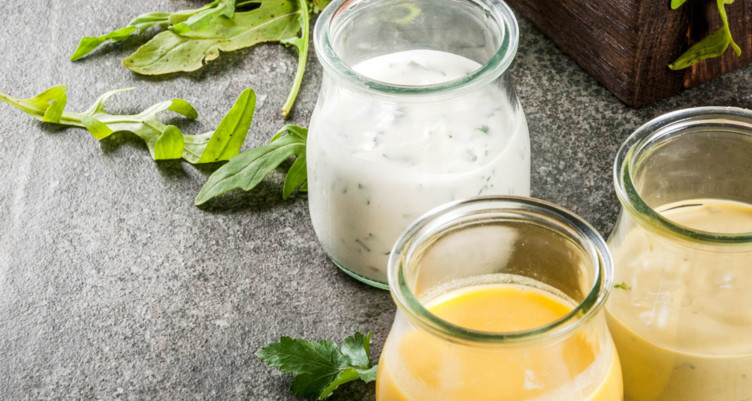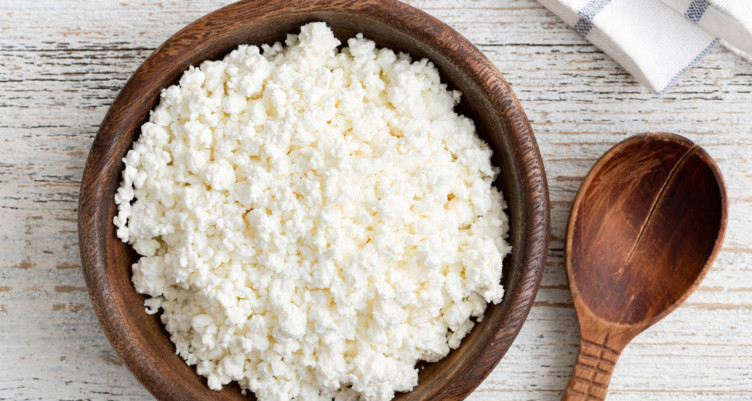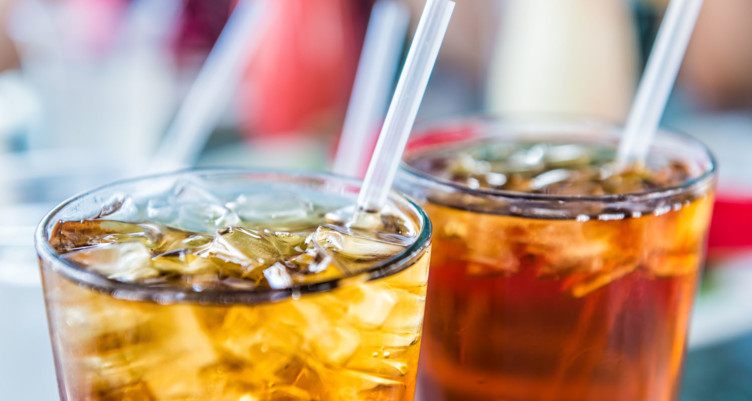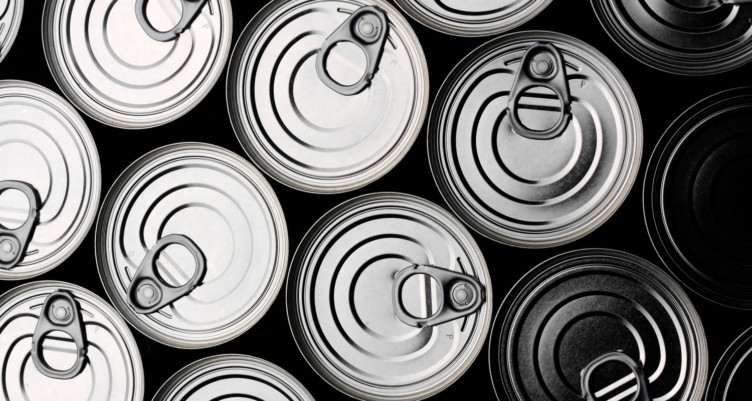5 Food Additives That Wreck the Gut

- With so many ingredients in foods these days, it’s easy to overlook common food additives. Many of them are harmless, but some food additives damage your gut bacteria and cause inflammation.
- Polysorbate 80, carboxymethylcellulose, sucralose, aspartame, artificial coloring, bisphenol-A (BPA), and bisphenol-S (BPS) all damage your gut lining, cause intestinal inflammation, or inhibit beneficial gut bacteria.
- This article covers each additive in detail and lists common foods that contain them.
Bulletproof principles focuses on whole foods like grass-fed meat and organic vegetables that are free of additives — but that doesn’t mean there’s a problem with packaged food. As long as it has quality ingredients, packaged food is a great way to get nutrients on the go and save some time in the kitchen.
When you eat packaged food, though, make sure you look at the ingredients list. Odds are that it contains a few food additives to make it taste good and stay shelf-stable.
A lot of food additives are fine to eat, even if they have long, chemical-sounding names. Tocopherol, for example, is a common preservative that sounds scary, but it’s just another name for vitamin E, an antioxidant that’s good for you and keeps food from spoiling. Ascorbic acid falls into the same category — it’s vitamin C.
However, there are a few food additives that aren’t so harmless. The additives listed below all damage your gut, either by destroying your gut lining, causing intestinal inflammation, or inhibiting beneficial gut bacteria. You’re better off avoiding these five food additives. This article will talk about the science behind each of them, as well as common foods that contain them.
Food additives that harm your gut
1. Polysorbate 80

Polysorbate 80 is an emulsifier — it stabilizes liquids that would normally separate, giving them a creamy, homogeneous consistency.
A 2017 study found that polysorbate 80 decreases beneficial bacteria in your gut[1]. Pathogenic gut bacteria also feed on polysorbate 80, which leads to increased gut inflammation and risk of weight gain in both humans and rodents[2].
The studies note that polysorbate 80 damages gut bacteria gradually, so unless you have a serious gut imbalance, a single serving of polysorbate 80 probably won’t move the needle much. That said, you’re best off avoiding polysorbate 80 as a rule. You’ll definitely feel better if you don’t eat it regularly.
Foods that contain polysorbate 80:
Watch out for polysorbate 80 in heavy cream, coconut milk, bottled sauces, dressings, and other viscous foods that combine liquids and fats. With a little effort, it’s easy to find versions of products that don’t contain this food additive.
Note: you’ll also find polysorbate 80 in a lot of cosmetic products. That’s not a problem, at least for your gut — polysorbate 80 only harms your gut bacteria if you ingest it.
2. Carboxymethylcellulose

Carboxymethylcellulose (sometimes listed on ingredient labels as cellulose gum or CMC) is another common emulsifier that damages your gut. It’s also sometimes used as a thickening agent.
Unlike polysorbate 80, which harms your gut over time, carboxymethylcellulose causes gut inflammation immediately by messing with gene expression in your gut bacteria. Gut bacteria exposed to carboxymethylcellusose overproduce flagellin, a gut-irritating protein[3].
Foods that contain carboxymethylcellulose:
Fruit juices, milk, cream, baby formula, cream cheese, cottage cheese, dressings, and gelatinous foods can all contain carboxymethylcellulose. You should be able to find additive-free alternatives fairly easily.
3. Sucralose

Sucralose (Splenda) is an artificial sweetener that took some heat a few years ago, when news outlets reported that it may cause cancer.
It turns out sucralose probably doesn’t cause cancer, unless you’re drinking 70+ cans of diet soda a day. However, the artificial sweetener does have a few other issues that make it worth avoiding.
Rats that ate normal amounts of sucralose saw a nearly 50% decrease in beneficial gut bacteria, and also showed heightened liver enzymes, which can interfere with absorbing nutrients and drugs[4].
There’s no good reason to eat sucralose, especially when there are so many safe alternative sweeteners you can use in its place.
Foods that contain sucralose:
Diet soda, sugar-free products, protein powders, and pre-workout drinks often contain sucralose. You can usually find versions sweetened with stevia, monk fruit, xylitol, or another healthy sweetener instead.
4. Aspartame

Aspartame (NutraSweet) is another common artificial sweetener that may interfere with your gut. It changed the types of gut bacteria in mice and made them worse at processing sugar[5].
Again, there are plenty of quality alternative sweeteners out there. There’s no reason to use aspartame.
Foods that contain aspartame:
Diet soda and other diet products often have aspartame in them.
5. Bisphenol-A (BPA), bisphenol-S (BPS), and bisphenol-F (BPF)

While BPA isn’t technically a food additive, it is a common part of food packaging. BPA is a component of plastic; you’ll find it in a lot of plastic packaging, as well as in the lining of metal cans.
In mice, BPA increases damaging gut bacteria that increase risk of irritable bowel syndrome (IBS) and colorectal cancer[6]. The mice pass on the bad gut bacteria to their offspring, too. BPA also mimics estrogen, which disrupts hormones in humans[7].
BPA is becoming less common these days. Odds are you’ve seen plastic bottles labeled “BPA-free.” However, that usually means the manufacturers have replaced BPA with its relatives, BPS and BPF. New research suggests that BPS and BPF are no better than BPA; they also interfere with your hormones, and may also damage enzymes in your gut[8].
You’re best off avoiding plastic packaging. Look for drinks and food products packed in glass to avoid bisphenol altogether.
Foods that contain BPA, BPS, or BPF:
Foods and drinks packed in plastic containers or aluminum cans.
Sign up for early access to sales, product launches, the latest Bulletproof news and more!



